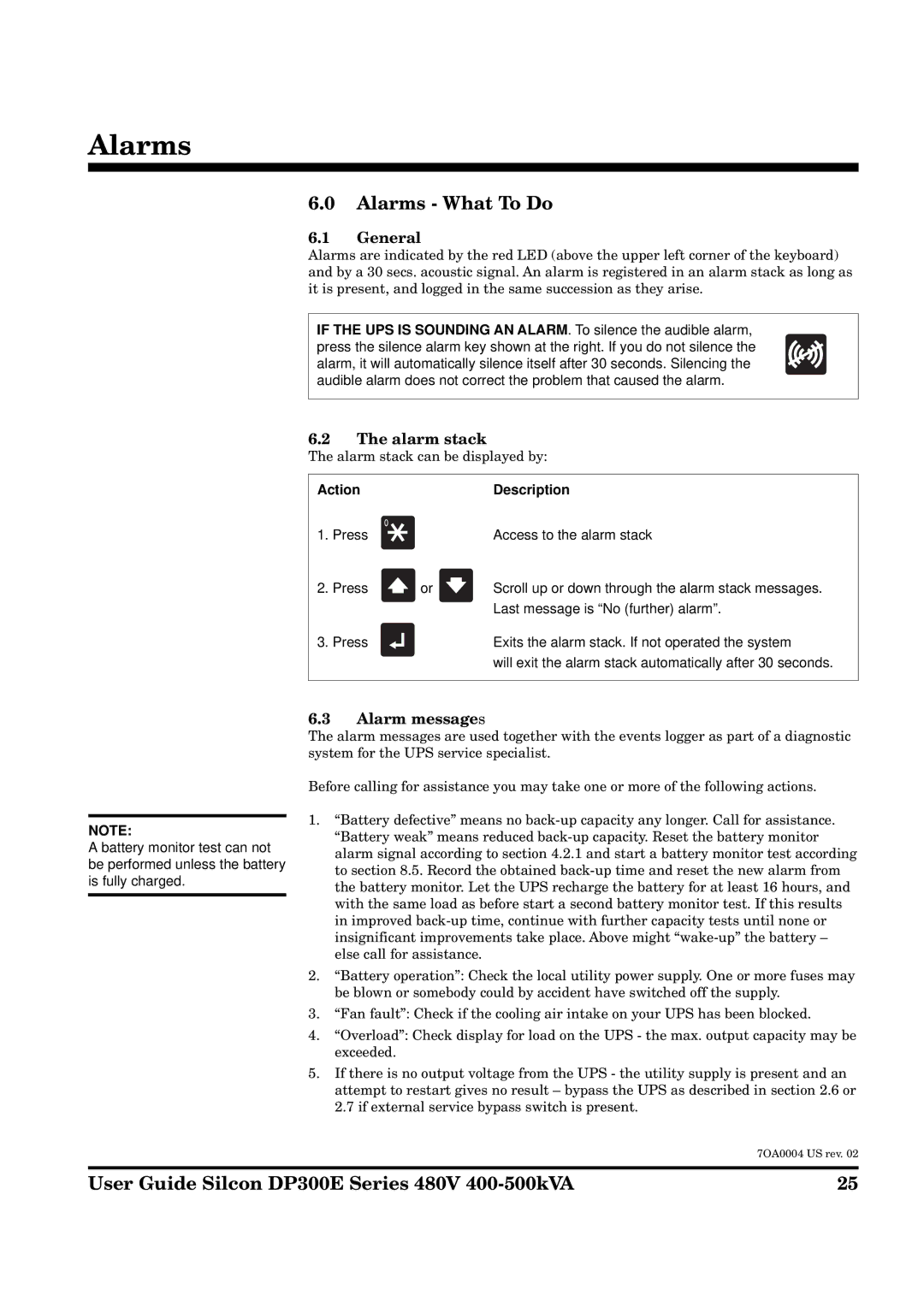
Alarms
6.0Alarms - What To Do
6.1General
Alarms are indicated by the red LED (above the upper left corner of the keyboard) and by a 30 secs. acoustic signal. An alarm is registered in an alarm stack as long as it is present, and logged in the same succession as they arise.
IF THE UPS IS SOUNDING AN ALARM. To silence the audible alarm, press the silence alarm key shown at the right. If you do not silence the alarm, it will automatically silence itself after 30 seconds. Silencing the audible alarm does not correct the problem that caused the alarm.
6.2The alarm stack
The alarm stack can be displayed by:
ActionDescription
1.Press ![]()
2.Press ![]() or
or
3.Press ![]()
![]()
Access to the alarm stack
Scroll up or down through the alarm stack messages.
Last message is “No (further) alarm”.
Exits the alarm stack. If not operated the system
will exit the alarm stack automatically after 30 seconds.
NOTE:
A battery monitor test can not be performed unless the battery is fully charged.
6.3Alarm messages
The alarm messages are used together with the events logger as part of a diagnostic system for the UPS service specialist.
Before calling for assistance you may take one or more of the following actions.
1.“Battery defective” means no
2.“Battery operation”: Check the local utility power supply. One or more fuses may be blown or somebody could by accident have switched off the supply.
3.“Fan fault”: Check if the cooling air intake on your UPS has been blocked.
4.“Overload”: Check display for load on the UPS - the max. output capacity may be exceeded.
5.If there is no output voltage from the UPS - the utility supply is present and an attempt to restart gives no result – bypass the UPS as described in section 2.6 or 2.7 if external service bypass switch is present.
7OA0004 US rev. 02
User Guide Silcon DP300E Series 480V | 25 |
